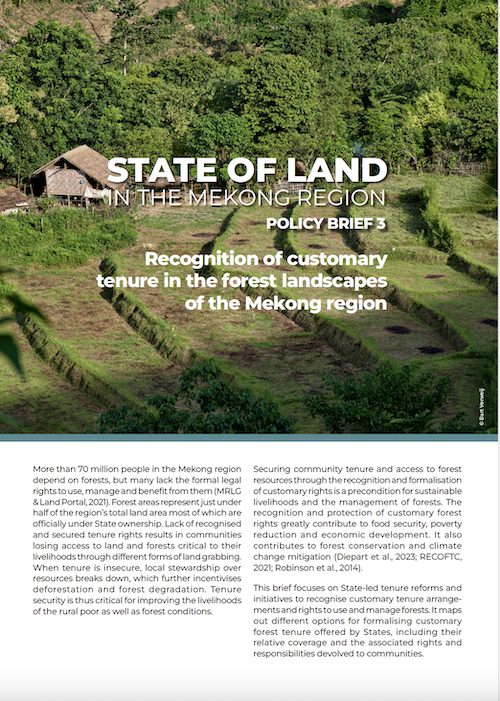Resource information
The policy brief, one of four briefs on the agrarian transition in the Mekong region, explores initiatives and pathways forward to recognise customary tenure arrangements and rights over forest areas in the region. More than 70 million people in the region depend on forest areas but lack formal legal rights to use, manage, and benefit from them. Forest landscapes represent just under half of the region’s total land. Yet, over the past two decades, the region has lost a significant amount of forest due to the expansion of commercial agriculture. Tenure security, specially recognition and protection of customary forest tenure, can greatly contribute not only to forest conservation and climate change mitigation but also to food security, poverty reduction, and economic development.
Based on a meta-analysis of literature, the brief identifies key themes and debates shaping trends and pathways for customary recognition of forest tenure and emphasises pathways to increase tenure security in forest landscapes. It highlights four pragmatic pathways to improve smallholder rights to customary forest arrangements and livelihood opportunities and support the interests of the states to achieve their goals of sustainable forest management and inclusive economic growth.

